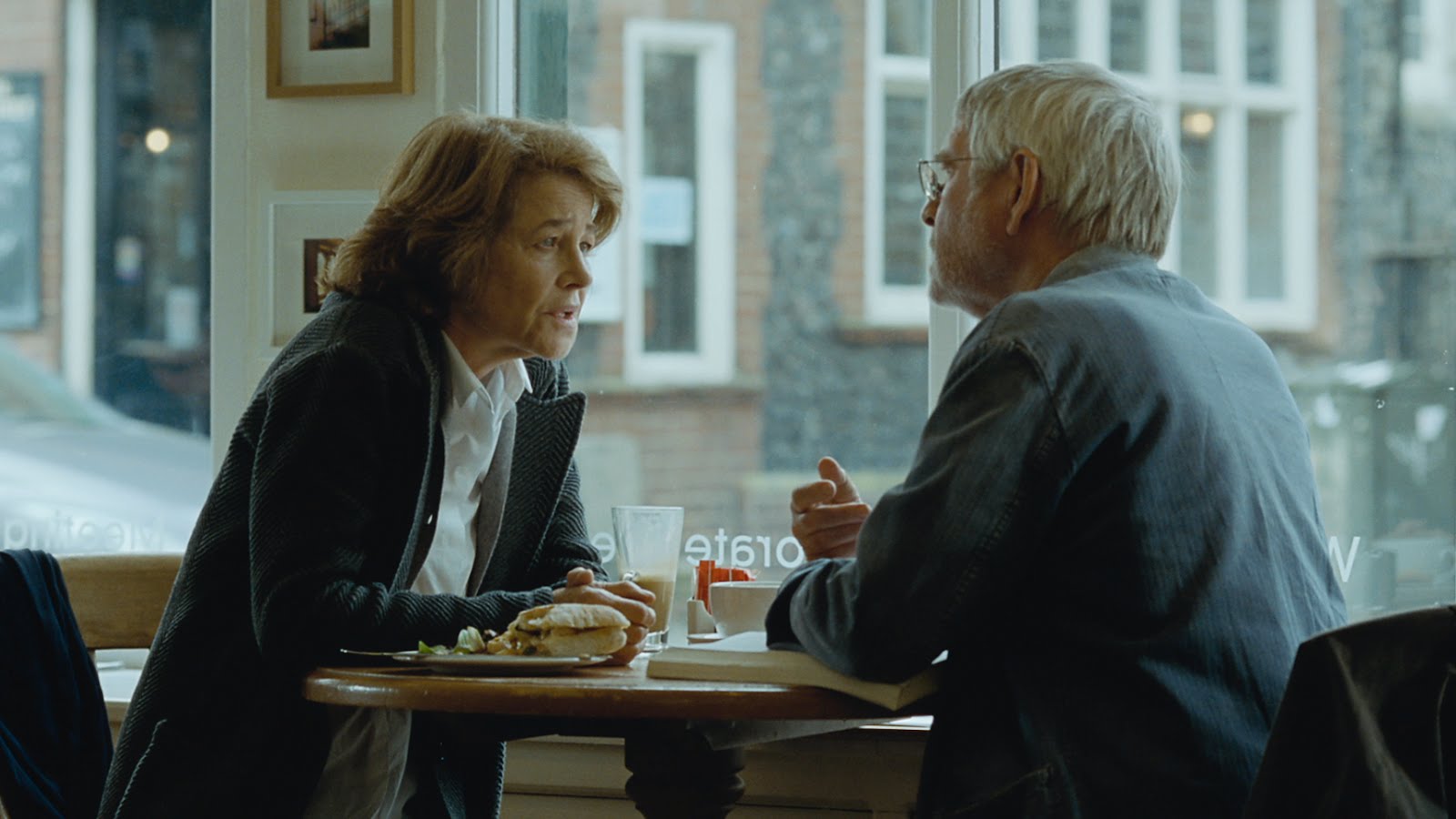As adult dramas go—and there are so few today it seems out of line not to be generous—45 years, starring Charlotte Rampling and Tom Courtney as a longtime married couple whose relationship fissures when the past intervenes, is tasteful, well-acted, sincere and so low-key it feels anemic.
Its chief merit is Oscar-nominated star Rampling, who carries this arduous if well-meaning movie on her shoulders, her nearly 7o-year-old face holding the film’s many close-ups with a command able to covey, with utmost subtlety, the tiniest of emotional shifts suggesting a muted tsunami breaking deep inside.
But writer-director Andrew Haigh’s character study would have done well to equally train its close-up lens on the crafting of a more compelling screenplay, here an exercise in interior minimalism told with so deliberate a pace that, frankly, it becomes tedious long before its striking final scene.
A love story but not in the traditional sense, 45 Years charts, perhaps, the death of love in its dissection of a decades-long union rocked first by a revelation then by a subsequent personal inquiry. Some things it would seem, like long-buried ex-loves, are better not to know about.
Rampling and Courtney are comfortable and devoted Kate and Geoff Mercer, living out retirement in a pastoral English countryside town, a vision of erudite, educated refinement. Planning a lavish 45th anniversary party, the pair is surprised by the revelation that the body of Geoff’s former fiancée—who died fifty years ago in a Swiss Alps hiking accident—has been discovered, perfectly preserved in mountain ice. Geoff’s admission that he was the doomed girl’s next of kin doesn’t go over well with Kate, her husband’s suddenly unbalanced state cause for further inspection.
Suddenly, the simpatico soul mates are in different worlds, and Kate’s increasing curiosity leads to an emotional excavation of sorts, digging in a Pandora’s Box of memory, suspicion and reevaluation. While Geoff takes to the attic, delving into mementos and resurrecting an old slide projector, Kate confronts the age-old question of how well you can ever really know someone, even after nearly five decades together. Suddenly strangers, their passion dissipates into unspoken tension. Yet while all of this simmers beneath the surface, they march toward the celebration of a union that may just be a sham, or at least a surrogate for a true love that ended in tragedy.
It’s an undeniable kick to watch two such pros performing in such sync, and such a mature movie, at this point in their respective careers. Courtenay, the classic “angry young man” actor from London’s swinging 60s who became a star onstage and then in 1962’s The Loneliness of the Long Distance Runner before going on to acclaim in Doctor Zhivago and The Dresser, is perfectly matched by the regal, ever-chic Rampling. The most daring of actresses, Rampling is perhaps best-known for her controversial role in 1974’s absurdly sensationalistic Nazi torture affair The Night Porter opposite Dirk Bogarde, but with her own particular brand of introspection in latter career psychological thrillers like Under the Sand and Swimming Pool. Her list of credits across more than five decades of international films is, bar none, the definition of world cinema.
Questioning how we might ever understand or deal with the past and how well we can truly know ourselves, partners and relationships, 45 Years is a precisely arranged series of small emotional beats more about observing interpersonal communication and internal realizations than about cumulative dramatic momentum, which, truly, even as subtle a picture as this one requires. And while capturing the depths of a character’s internal life is no small task, as effective as Rampling is at conveying these delicately shifting emotional states, the movie fails to hold as much interest as its star.
45 Years is a slow, slow burn to its effective final scene, and much like Kate’s rising realization that she may not have known the man with whom she has spent a lifetime, the ninety minutes we spend trying to penetrate this picture afford us more insights into her dilemma than the screenplay itself.
2 1/2 stars.



